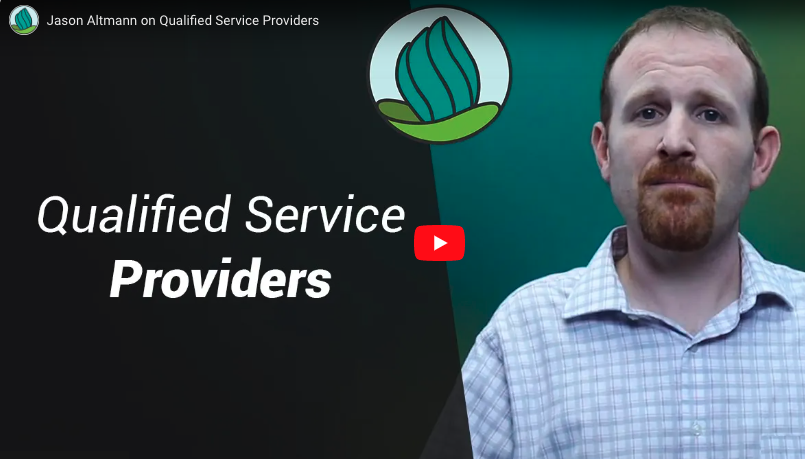Interpreting for Effective Communication
When arranging interpreting services, you can ensure effective communication access by hiring qualified interpreters, keeping interpreting consistent, and checking in regularly with the deaf person.
Jason Altmann discusses interpreter qualifications. Read full video description
Under the Americans with Disabilities Act (ADA), a qualified interpreter is defined as “someone who is able to interpret effectively, accurately, and impartially, both receptively…and expressively…using any necessary specialized vocabulary.”
Strategies for Coordinating Services
Consider various strategies and possibly a combination of services when coordinating interpreting services:
- Ask the deaf person about their needs to ensure the right type of interpreter is provided.
- Gather information on the setting and topic to secure an interpreter who is familiar with the content, has the right interpreting skills, and is a good fit for the deaf person.
- Honor the deaf person’s request, especially when highly technical information is being communicated.
- Check in regularly with the deaf person. Feedback from the deaf person can ensure the interpreter is supporting effective communication access.
BEST PRACTICES IN ACCESS
Avril discusses her experience with interpreters. Read full video description
Interpreter Consistency
Consistent interpreting for ongoing needs is vital to effective communication.
A designated interpreter can ensure interpreting remains consistent throughout an interpreting assignment. They are assigned to a specific job, setting, or client on an ongoing basis. Most often used in healthcare, designated interpreters are useful in a variety of settings.
Team Interpreting
Standard practice is to have a team of interpreters for a long or complex assignment. Working in a team helps interpreters protect the integrity of the message and helps prevent repetitive motion injury and other issues common in the industry.
General Audiences
When providing access to a general audience without a specific request from a deaf person, best practices encourage planning ahead and providing interpreters.
Additionally, emerging practices in these situations include the use of Deaf Interpreters (DI) and dual accommodations to meet the communication access needs of a wide-range of people.
Dr. Naomi Sheneman explains the advantages of using a deaf interpreter. Read full video description
In addition to having specialized skills, an interpreter should have a cultural fit with the deaf person. Read full video description
Specialized Settings
Interpreters assigned to technical or specialized assignments should possess an understanding of the terms, concepts and context through prior experience, training, and/or specific credentials.
Examples of specialized content could include, but is not limited to: foreign language courses, law school, medical programs, performing arts, STEM coursework, mental health/counseling.
Internships & Field Work
Coordinating interpreters for internship sites requires advance planning and attention to details beyond regularly scheduled assignments, such as courses. Discuss with the deaf student, internship host, and the school about how often interpreters will be needed as well as any site requirements or policies. For example the site may require interpreters:
- Work flexible hours.
- Complete a health background including required vaccinations or tests.
- Meet particular health safety requirements, such as standing for long periods, walking, hiking, traveling in boats/airplanes/buses, and camping outdoors.
- Travel to different locations.
- Work near dangerous chemicals, food items, or hazardous materials.
- Adhere to a specific dress code (e.g., steel-toe shoes, personal protective equipment).
- Work in various weather conditions.
Study Abroad
Similar to internships, coordinating interpreting services for study abroad activities requires creative strategies, individualized planning, and ongoing communication with the deaf student and study abroad program coordinators. See NDC’s Study Abroad Planning Guide for strategies when working with interpreters along with scheduling considerations.
Additional Resources
Best Practices in Access: Hiring Qualified Interpreters
Developing Contracts and Requesting Bids: Interpreters and Speech-to-Text Providers
Registry of Interpreters for the Deaf: Standard Practice Papers
Creating Access: Internships and Field Experiences
Equitable Access Guide: Understanding Legal Responsibilities for Institutions (Section 9: Internships and Accessibility)
Deaf Medical Students (Planning Ahead: Deaf Students Participating in Healthcare Internships and Clinicals)






